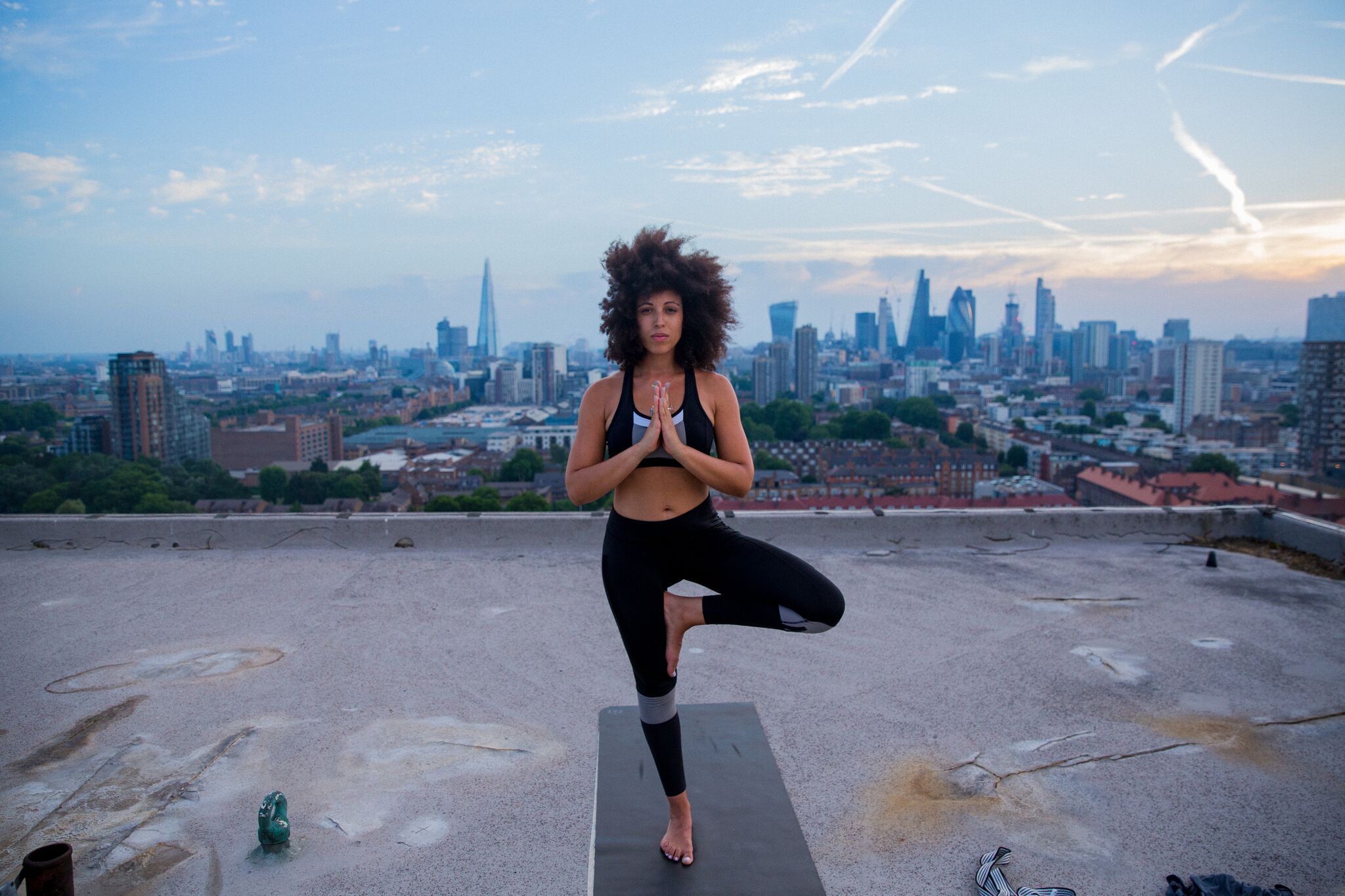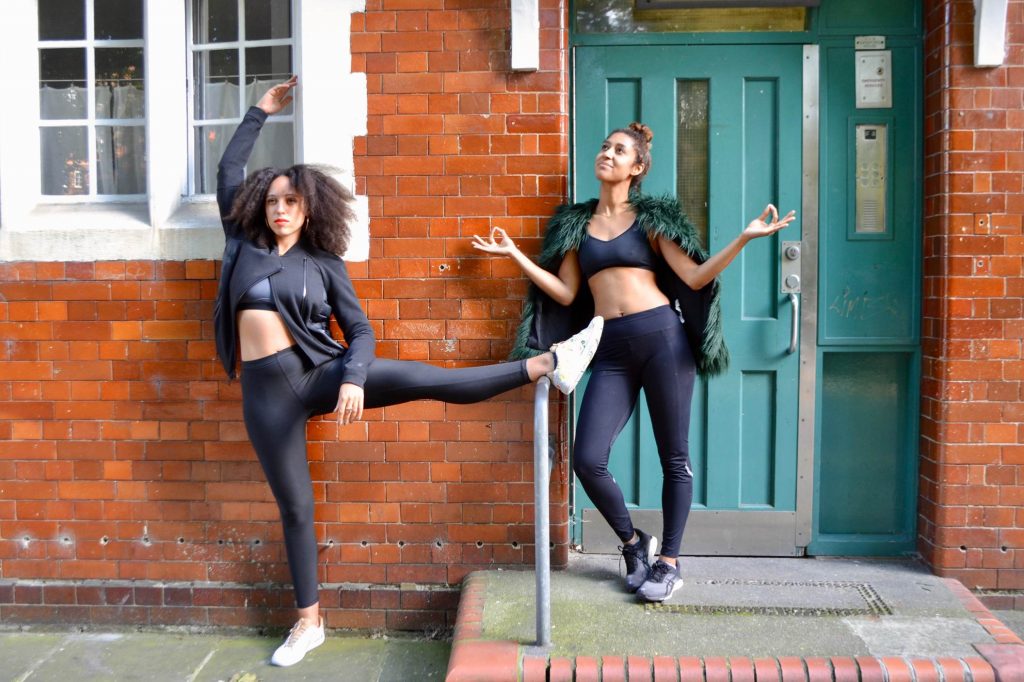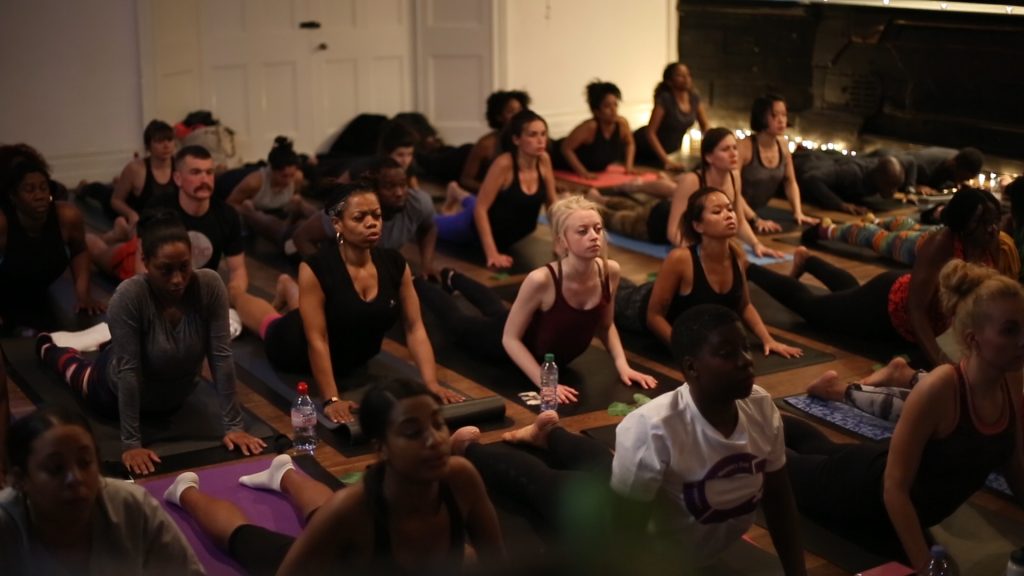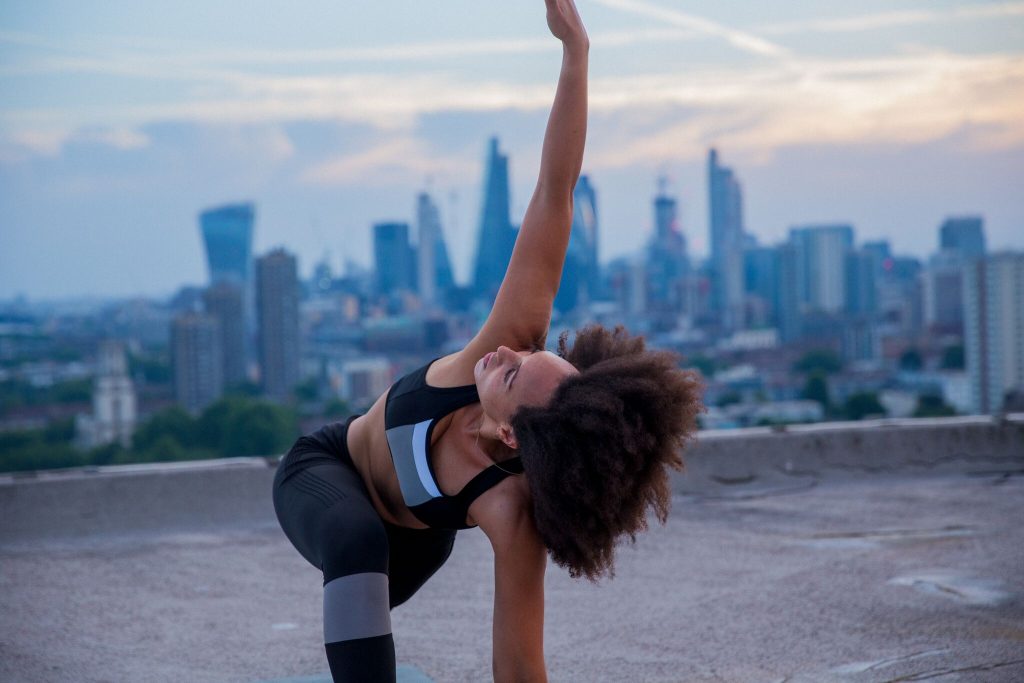
Stars do it, athletes do it, and judges in the highest courts do it. Yoga: the latest craze that has taken the fitness market by storm. You can find yogis practising their lotus position and warrior one in urban lofts whilst the jet setters travel to hot climates to undergo a yoga retreat. You would even be hard pressed to find a gym in the land that doesn’t boast at least one type of yoga class, be it sweaty Bikram sessions at Hot Yoga Society in London Bridge, or dynamic Ashtanga yoga in Kensington.
 image by Caroline Shaw
image by Caroline ShawWellness currently stands as the buzzword of 2017, so you shouldn’t be shocked when visiting your favourite media site’s health page that you are swamped with posts on fitness and wellbeing. One would say this is a step in the right direction. Whilst the stories and writers may vary, one common denominator is their lack of diversity. It should come as no surprise to expect a yoga class filled with middle-class white women. After all, the majority of marketing campaigns from companies championing yoga – such as Sweaty Betty – are whitewashed, with the exception of Outdoor Voices, who cast US gymnast Natasya Generalova for their 2016 commercial. The yoga hype has been around for many years, but what it has lacked is variety and inclusivity. For me, and the majority of people, it has never been a space where I felt my blackness would be accepted.
“Noticing herself as a black woman in the white-washed yoga scene was a common occurrence”
For London-born Sanchia Legister, noticing herself as a black woman in the white-washed yoga scene was a common occurrence. She felt she didn’t identify with phrases like “float your leg to the sky” and regularly found herself sandwiched between very bendy, flexible and tiny framed women – something she felt ended up being more of a competitive class rather than a space within which to switch off.
With yoga being so popular in the white community, Sanchia started Yogahood out of frustration and passion. She wanted to create a space where men and women could share the same space respectfully. It launched last year as yoga class suitable for urbanites searching for a class to vibe to, rather than listen to – what one of her attendees calls “pseudo spiritual gongs and pan pipe music”.
Hailing from a performing arts background, she had practiced yoga whilst undertaking her degree at drama school but never once thought about teaching it. “I felt like I was getting it wrong. I would be breathing in when I should be breathing out; nothing seemed to flow in my body. I didn’t get it, especially as I loved to rave and move to music,” she explains.

Deciding to take some time out for herself to think about her future, she realised she wanted to become the “bigger and badder” version of herself. Eventually, she turned her attention to yoga and took the plunge by learning to teach and now, after completing her yoga qualification, she is now a fully qualified yoga teacher. If you walk into her class, yogis can be seen perfecting their downward-facing dog to the soundtracks of Erykah Badu, Sade, or Solange. Not only do women of colour sign up to her sold out classes, but many men attend too. “They usually give it a try ‘cos they heard my playlists were lit af. The music I play is familiar music to them and the people that come to my classes. There’s a shared interest in the room from the very beginning”.
One of her friends, Mr Trouble, who had never toyed with yoga before, learnt how to tailor his own flows after attending the class and now shares his yoga journey on Instagram. He’s now doing a 90-day fitness challenge called #BIGMAN90.
Not only are ethnic minorities more susceptible to developing chronic health conditions such as diabetes, heart disease, and obesity than their white counterparts, mental health problems are rife within the community too. Statistically, black and minority ethnic groups in the UK are more likely to be diagnosed with a mental health problem, with contributing factors including poverty and racism.
“The question that has often sprung to my mind is, where are black people getting their meditation and yoga fixes?”
Yoga helps to reduce stress and the prevalence of chronic illnesses like hypertension and heart disease. It also lowers blood sugar and increases flexibility and strength. “My social media feeds highlight more than ever a need for this within the black community. I believe meditation and yoga can help with the issues our community is facing. The question that has often sprung to my mind is, where are black people getting their meditation and yoga fixes? If it’s happening at home, then awesome, but if not, then for me that’s a problem.”
With the aim to inspire and encourage others to take the plunge and try something new, she credits her new practice as giving herself peace of mind. “Yoga has allowed me to keep my energy but it’s just a bit calmer now. People start yoga for loads of different reasons, and slowly but surely, yoga starts to creep into all aspects of your life. My compassion grew, I started thinking even harder about the decisions I make, the food I eat, and where I put my energy.”

With meditation in mind, she teamed up with friend Holiday Phillips, founder of Breathe & Stop, to launch Gyal Flex. Dubbed “the urban face of wellbeing”, the duo launched the monthly link up which combines hip hop meditation with vinyasa yoga and a chilled “backchat” Q&A segment. When discussing their joint passion with Run Dem Crew founder Charlie Dark, they decided to launch their first event which sold out within days. “She’s got an awesome energy and vibe with a smooth, reassuring voice. We talked about the combination of yoga and meditation event to a curated predominantly hip hop playlist and came up with Gyal Flex.”
The afro-rocking queen has planned to attract people who feel left behind by the yoga scene and want to focus on their well-being, self-love, and self-care. “Hopefully if you’re black and have an interest in yoga but by lack of seeing yourself you’ve been holding back, you might think again if you see me or come to my class. I try to mix language with classic Sanchia-isms and of course a mixture of Sanskrit and English, but essentially I keep it real.”
Tickets for Yogahood can be found here.








